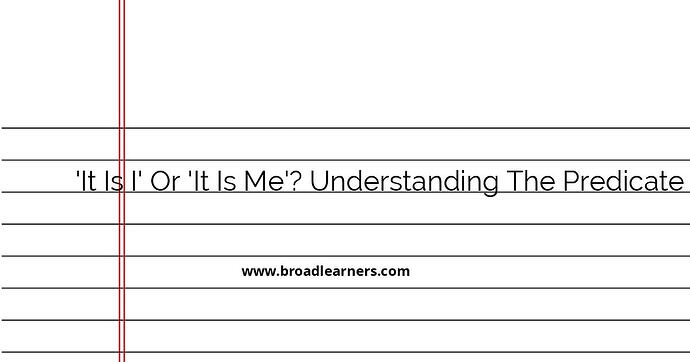Understanding whether to use 'It is I' or 'It is me' requires knowledge of the predicate nominative in English grammar.
In English grammar, a predicate nominative is a noun or pronoun that follows a linking verb and renames or identifies the subject of a sentence. When a verb like 'is', 'am', 'are', 'was', 'were', 'be', 'being', or 'been' is used in a sentence, the word that follows it is the predicate nominative.
In the case of 'It is I' or 'It is me', the choice depends on whether you use 'I' or 'me' as the predicate nominative. While both are commonly used, 'It is I' is considered more formal and grammatically correct because it follows the traditional rules of English language and subject-verb agreement.
Here are some examples of both phrases:
- 'It is I'
- This is more formal and often used in written English or formal speech. It follows the traditional rules of subject-verb agreement.
- Example: 'Who is at the door?' 'It is I, your neighbor.'
- 'It is me'
- This is more commonly used in conversational or informal English. While considered less formal, it is widely accepted in everyday language.
- Example: 'Who ate the last cookie?' 'It is me.'
Ultimately, the choice between 'It is I' or 'It is me' depends on the level of formality you wish to maintain in your speech or writing. Both are correct in different contexts, but 'It is I' adheres more closely to traditional grammatical rules.
Did I miss anything? Respond below
